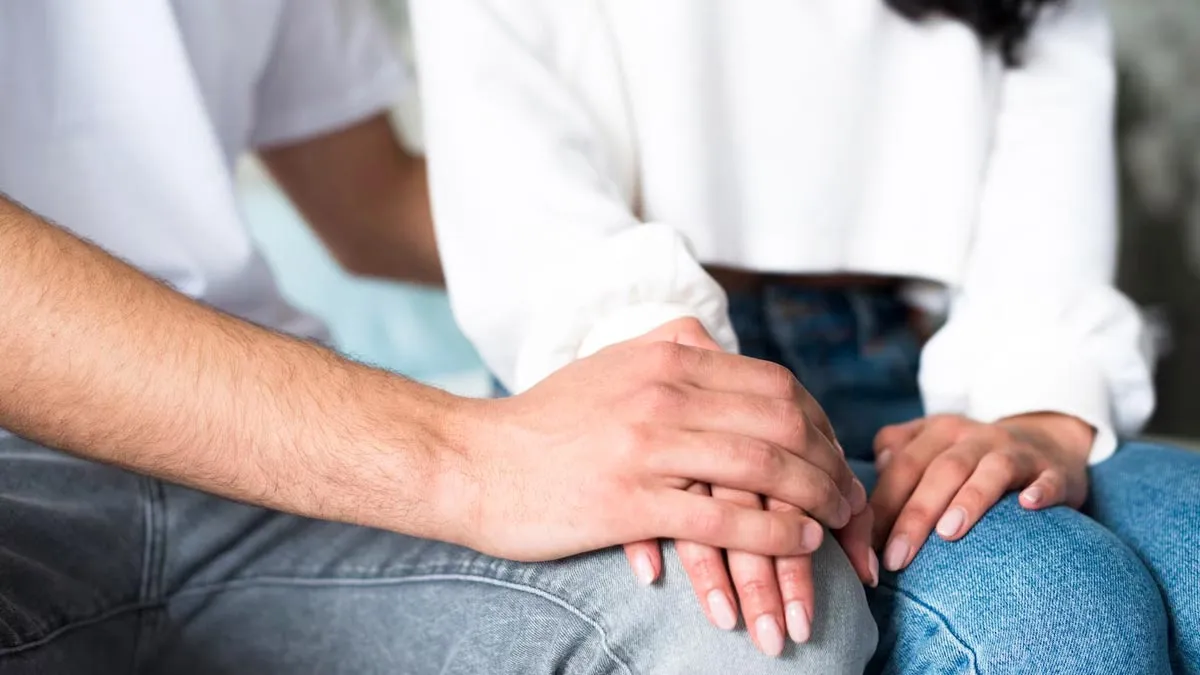
Readjusting to daily life after being diagnosed with heart disease can feel overwhelming. From questioning what to eat to worrying about how much activity your body can handle, the uncertainty can touch every part of your routine.
A common concern about intimacy is whether it is safe to have intercourse if you have heart disease. Or, will it put too much strain on the heart?
To help address these worries, we spoke to Dr Kajal Singh, Associate Professor in the Department of Obstetrics and Gynaecology at NIIMS Medical College and Hospital. She explains whether it’s safe to engage in sexual activity while managing heart problems and what precautions you may need to take.
Sex is often described as a moderate form of physical activity, similar to climbing one or two flights of stairs. It’s no surprise that many people with heart failure or other cardiac conditions worry about whether sex might put extra strain on their heart, especially after surgery or medical procedures.
Dr Singh confirms this concern, explaining, “Heart problems can impact sexual activity both physically and emotionally. It’s important to openly address these effects, especially in women, as heart health and sexual health are closely linked.”

Additionally, the combination of reduced blood flow and anxiety about sexual performance can contribute to problems achieving orgasm. In women, this may present as difficulty reaching orgasm, which is also known as orgasmic dysfunction, while men might experience delayed or premature ejaculation.
Struggling to climax may also lead some people with heart disease to push themselves too hard during sex, potentially putting extra strain on the heart.
Heart health can significantly influence sexual function and experience in both men and women. Dr Kajal Singh shares five scientific ways heart disease can impact sexual activity:
Sex involves physical exertion similar to climbing stairs. Conditions like coronary artery disease or heart failure can reduce cardiac output, leading to fatigue and shortness of breath during intercourse. As a result, sexual frequency and satisfaction often decrease.
Don't Miss: 5 Safe Sexual Relationship Practices Everyone Should Know For Better Health and Hygiene
Healthy blood flow to the genitals is crucial for arousal and lubrication. However, atherosclerotic changes, common in heart disease, can reduce pelvic blood circulation, leading to reduced lubrication and arousal. Dr Singh said, “Women, especially post-menopausal, may also experience dyspareunia (painful intercourse).”

Medications such as beta-blockers, diuretics, and certain antihypertensive drugs can lower libido and affect orgasm. These medications may alter the sympathetic nervous system or cause vaginal dryness, affecting overall sexual response.
After a cardiac event, fear and anxiety about health or triggering another episode can cause psychological barriers to intimacy. “This can result in low sexual desire (Hypoactive Sexual Desire Disorder/HSDD), arousal difficulties, and a decrease in emotional closeness between partners,” said Dr Singh.
Don't Miss: Compulsive Sexual Behaviours in Women: Key Symptoms, Treatment, and More
Chronic heart disease can disrupt hormone levels, including oestrogen and androgens, affecting sexual desire and vaginal health. Additionally, autonomic dysfunction may impair clitoral and vaginal responses, further affecting sexual satisfaction.
Dr Singh emphasises the importance of open conversations about sexual health with those with cardiac conditions. With proper guidance from cardiologists, counselling, and supportive treatments like pelvic physiotherapy and lubricants, sexual well-being can often be maintained or restored even in the presence of heart disease.
Keep reading Herzindagi for more such stories.
Credits: Freepik
Also watch this video
Herzindagi video
Our aim is to provide accurate, safe and expert verified information through our articles and social media handles. The remedies, advice and tips mentioned here are for general information only. Please consult your expert before trying any kind of health, beauty, life hacks or astrology related tips. For any feedback or complaint, contact us at [email protected].